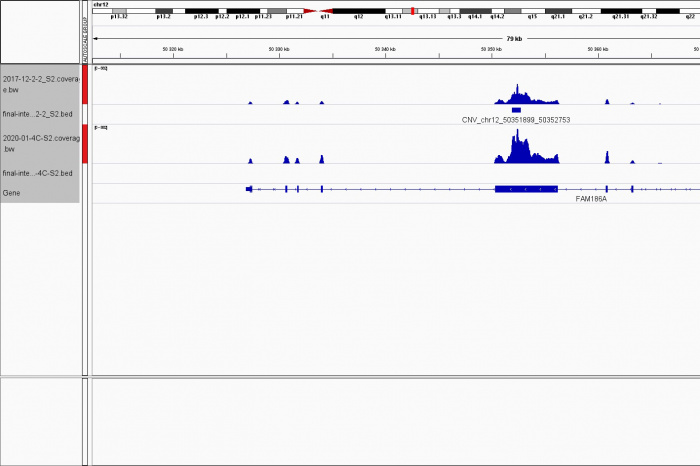
A unique bioinformatic algorithm for detecting small chromosomal rearrangements
Researchers at the Laboratory of Molecular Transcriptomics and Gene Therapy of WCRC for Personalized Medicine have developed for clinical and scientific use a unique bioinformatic algorithm for detecting small chromosomal rearrangements, deletions and duplications based on the analysis of exome data.
Based on the data originating from the NextSeq sequencer, bioinformatics specialists spent several months of 2021 adapting a new protocol for the analysis of exome sequencing data, which in some cases replaces the use of an expensive genomic hybridization technique.
This analysis algorithm already existed and was used for genomic data, but its use based on exome sequencing data was extremely difficult, time-consuming and required highly sophisticated bioinformatics analysis. Therefore, this approach could not be used in most research and clinical laboratories in our country.
Now with this algorithm, the specialists of the Competence Centre for Hereditary, Rare and Understudied Diseases (WCRC for Personalized Medicine), molecular biologists and clinical geneticists will be able to study in more detail the genetic causes of congenital and hereditary conditions and maximize the use of obtained exome data for the benefit of patients as well as for basic research.
11.06.2021
